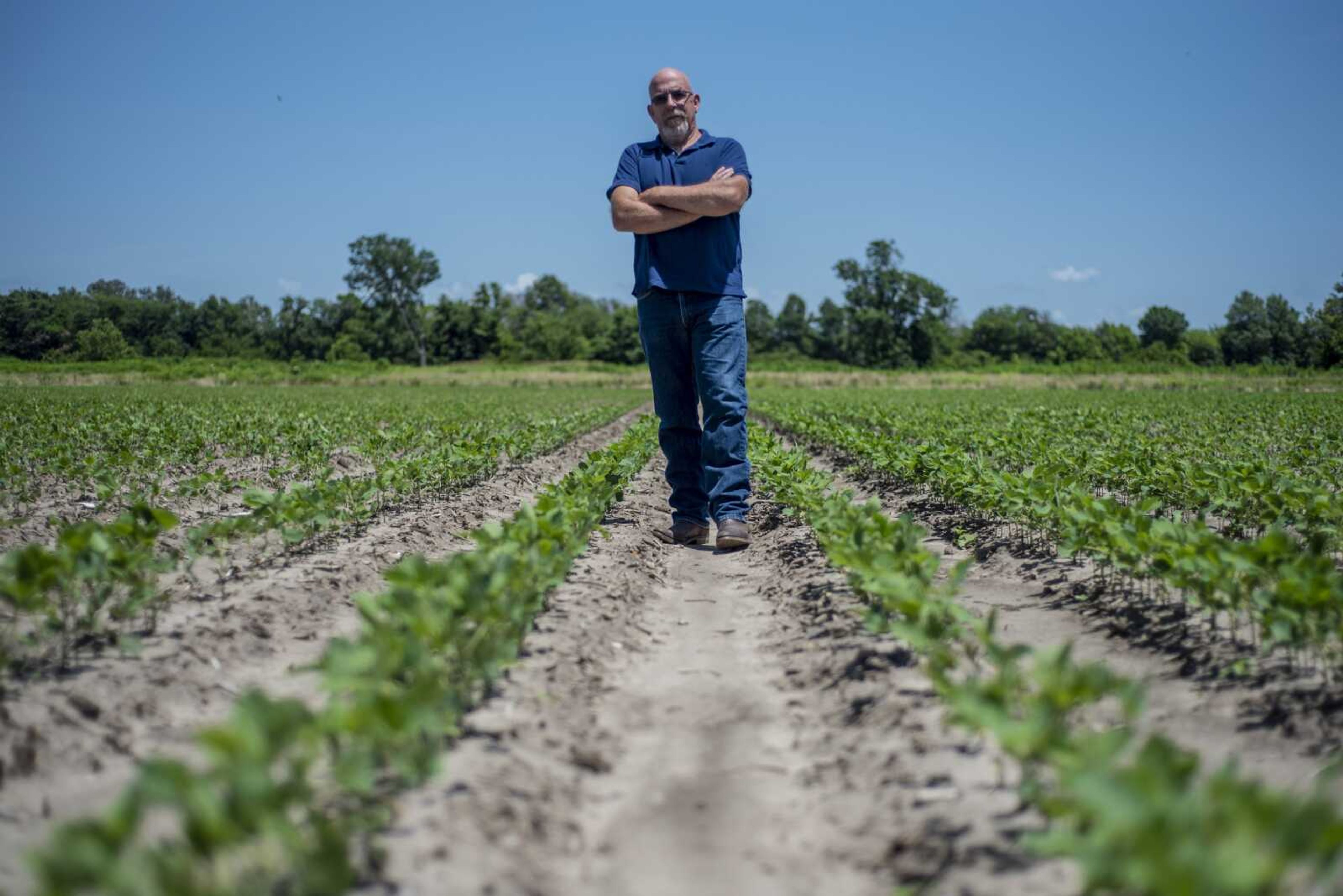Flood, sweat and fears: Combination of weather, trade disputes have farmers reeling
In spite of record rainfall, waterlogged fields, low commodity prices and a persistent trade war, Joe McCloskey considers himself luckier than most. “This has been the most difficult year in my 40-year history of farming,” McCloskey said. “The weekly rains have reduced the corn acres in Mississippi County to about a third of what they should be, and with the river flooding and seep water the way it is, soybean planting is way behind schedule,” he said. ...
In spite of record rainfall, waterlogged fields, low commodity prices and a persistent trade war, Joe McCloskey considers himself luckier than most.
“This has been the most difficult year in my 40-year history of farming,” McCloskey said.
“The weekly rains have reduced the corn acres in Mississippi County to about a third of what they should be, and with the river flooding and seep water the way it is, soybean planting is way behind schedule,” he said. “The only machinery that can get across saturated land like that is a crop duster.”
McCloskey, 66, farms about 400 acres near Charleston, Missouri, that several generations of his family have farmed since 1942. His will be the last generation of McCloskeys to farm in Mississippi County as he plans to retire in the next few years and his four daughters have chosen not to pursue careers in agriculture.
In a normal year, McCloskey said he would have had all of his soybeans planted by mid-May.
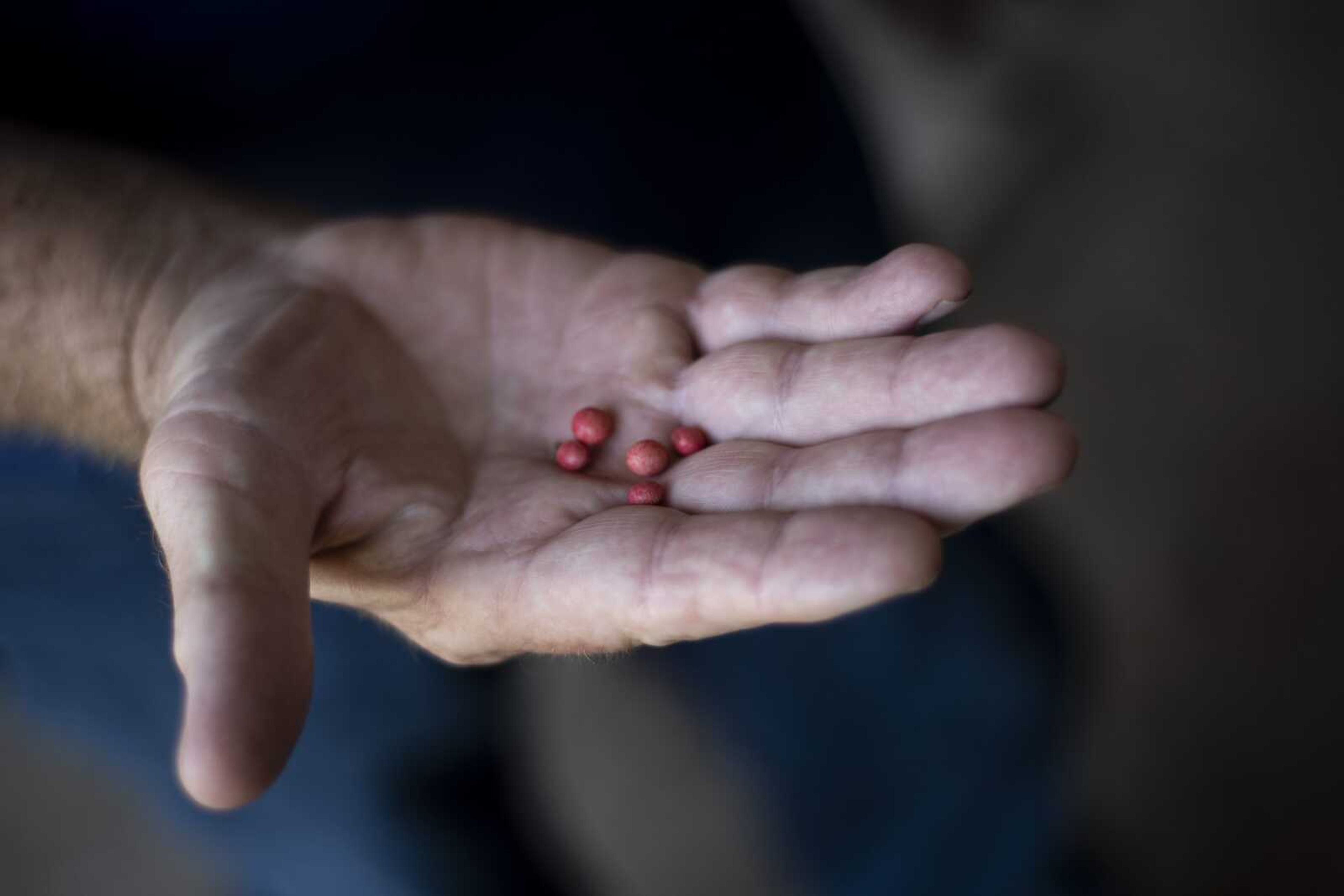
“Last year, on May the 15th, I was the first farmer in Mississippi County to certify my planted acres,” he said. This year, rain and floodwaters kept McCloskey from getting his crop in the ground until June 18.
And he was still the first farmer in the county to certify his acreage.
“There are thousands of acres inside the levees that are either underwater or are too wet to plant because of seep water,” he said. Even after he completed his planting, McCloskey had to replant more than 100 acres and the wet field conditions kept him from planting any corn acres as he had planned.
In addition to the acreage he farms, McCloskey rents out several hundred acres to other farming operations.
“One of our rental farms has been too wet to plant so far, and now the seep water and rain has it saturated,” he said.
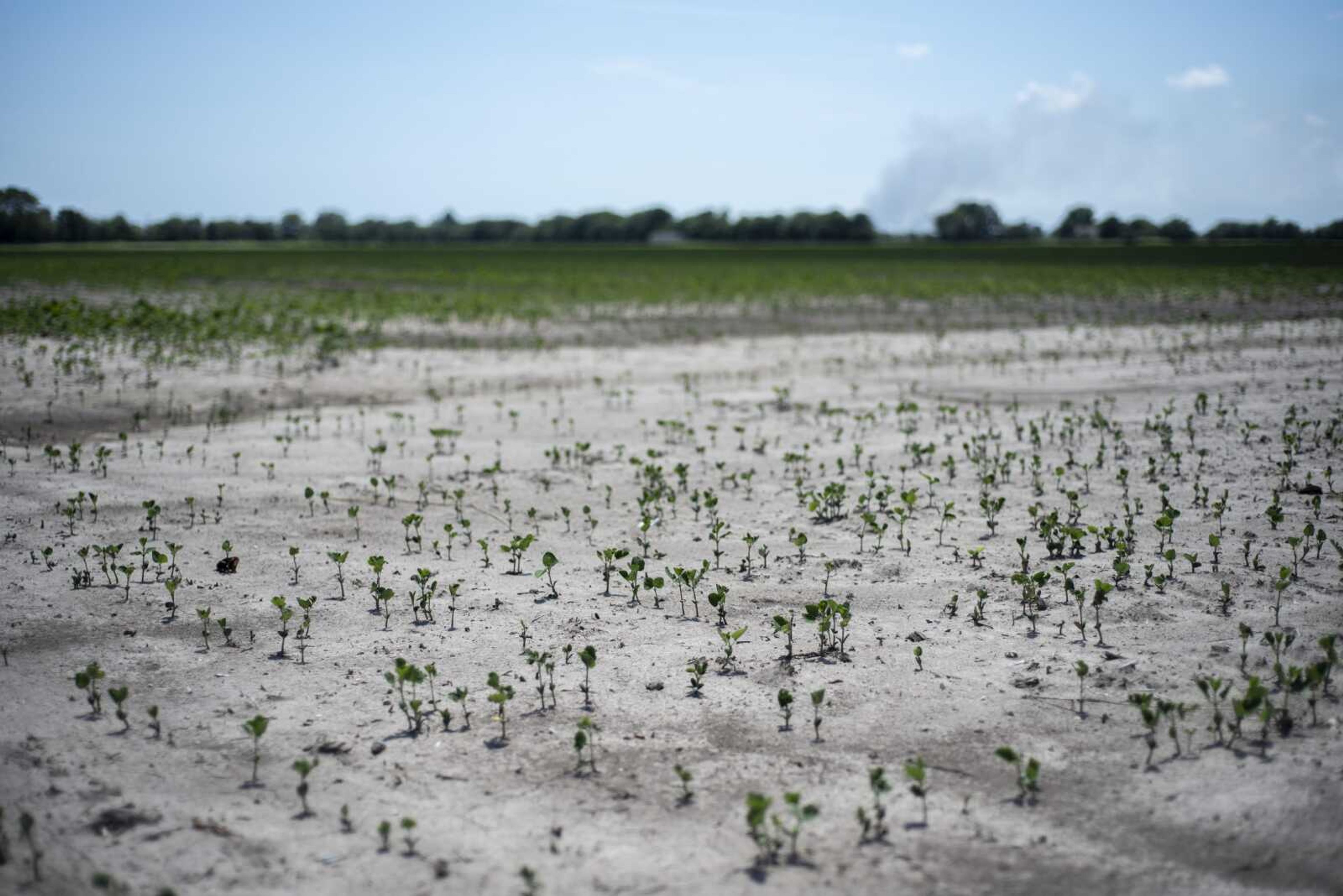
“The rain has been incessant,” McCloskey continued. “Seems like we’ve been getting a 2-inch rain every week and by the time it gets dry enough to go into the field, it’s raining again. They can’t pump the water out because the water on the outside of the levee is so much higher than the inside so if you tried to pump the seep water out it would just come back in. You have to choose your battle and pick your line of defense.”
Flooding isn’t unusual every year within the Mississippi County levee system. However, fields usually dry out well in advance of spring planting.
“But not this year,” McCloskey said. “This year, the river has been a flood stage essentially since Christmas. Since Dec. 28, I think there have only been five days when it was below flood stage.”
McCloskey’s situation is not unique. Hundreds of farms throughout Mississippi County and much of Southeast Missouri have been waiting for the ground to dry out so seeds can be planted and, because it’s so late in the planting season, more acres are being planted in soybeans, which can be planted later in the year than other crops such as corn.
More soybeans are grown in Southeast Missouri than any other crop and Mississippi County is second only to New Madrid County in soybean production among all Missouri counties. According to the U.S. Department of Agriculture’s National Agricultural Statistics Service, farmers in Mississippi County harvested more than 9.8 million bushels of soybeans in 2017, the most recent reporting year (New Madrid County checked in at nearly 11.5 million bushels that year).
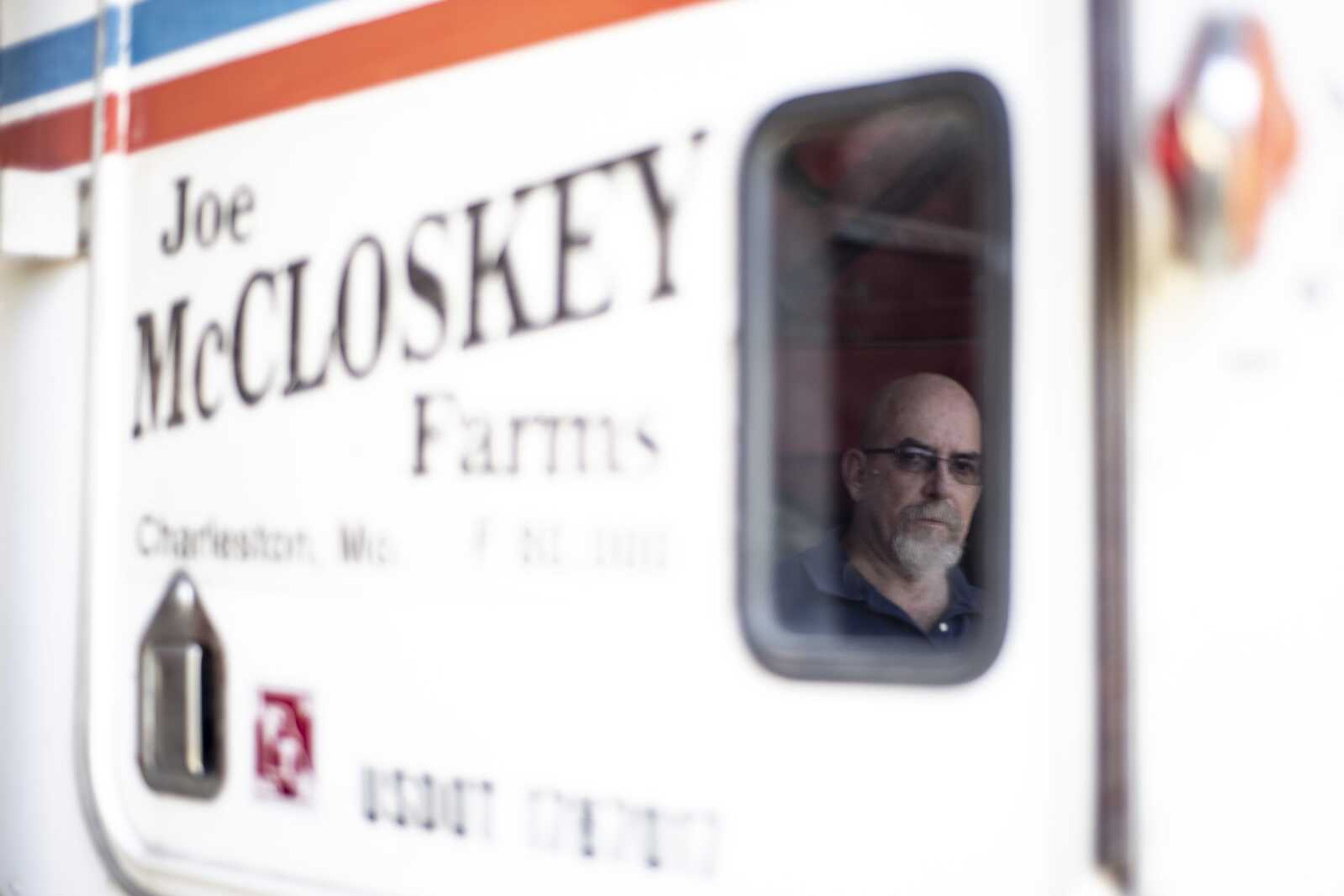
But this year, production is expected to be lower than normal because many acres simply won’t be planted.
Tens of millions
Laura Nolan, a risk management specialist with Diversified Services Agency in Cape Girardeau, handles crop insurance policies for hundreds of farm operations, including McCloskey’s, throughout nine Southeast Missouri counties and expects three times as many crop insurance claims this year as she might see in an average year.
“This is the most challenging year most farmers have ever seen,” Nolan said. “It’s shaping up to be one challenge after another. The record number of days with rainfall since November of 2018 has hindered all planting.”
Wet weather has been a challenge in past planting seasons, but this year has been especially challenging.
“We’ve seen corn planting prevented before when it rains in April and May, but what we haven’t seen is not being able to get soybeans in the ground when it continues to rain on through June,” Nolan said. “There’s a possibility soybean acres could be short. There’s always a potential loss and delay of planting on acres that are flood prone, but what there’s not always the potential of is rain every day, and you can’t get your crop planted anywhere. It’s so widespread.”
Although Nolan said she hasn’t “put a pencil to it,” she expects crop insurance claims to be in the tens of millions of dollars.
“I’ve already opened a lot of claims for prevented planting and replanting,” she said. “We’ll start seeing the outcome of the prevented planting claims from late July through October.”
Farmers by and large would prefer not to make claims on their crop insurance, Nolan said.
“I think there’s a common misconception that a farmer would rather rake a crop insurance payment rather than plant his crop,” she said. “I just have to say I have never met a farmer who didn’t want to farm and would rather see a field lay idle than to grow a crop.”
Nolan compared this year’s situation in Mississippi County to 2011 when the U.S. Army Corps of Engineers detonated sections of the Bird Point Levee south of Charleston to help lower floodwaters along the Mississippi River.
“But it dried up and they went in and planted their soybeans,” she said. “But this year, it just hasn’t happened.”
As if the weather and floodwaters weren’t enough to deal with, farmers throughout Southeast Missouri — and across the nation — are dealing with market fluctuations resulting, in part, from uncertain trade conditions and tariffs on agriculture commodities shipped overseas.
Trickle-down tariffs
Generally speaking, soybean farmers say they need to sell their beans for at least $9 a bushel in order to break even. However, soybean prices have been below that mark recently and some say that’s due, in large part, to an uncertain trade climate with China, the world’s largest importer of American soybeans.
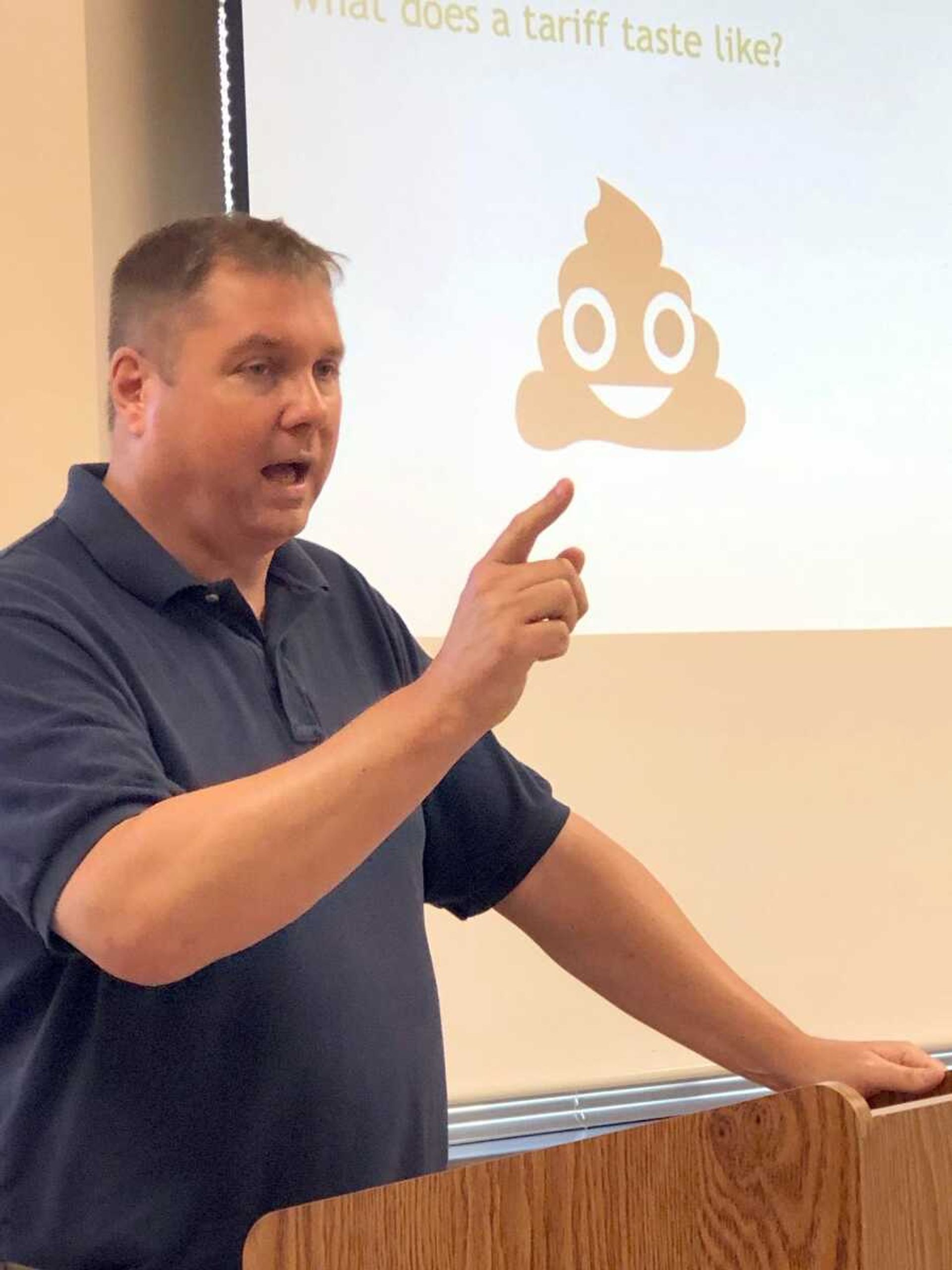
“We’re at a 14-year low on soybean prices,” according to Barry Aycock, a New Madrid County farmer who founded Agxplore International, a specialty fertilizer company in Parma, Missouri, that does business throughout much of the United States and 10 foreign countries. Aycock was in Cape Girardeau last week to address Cape Girardeau County Democrats on the subject of agriculture tariffs.
“Tariffs can help trade if you use them right, but any time you make one of your largest customers mad or angry, it’s never a good idea and that’s what we’ve done to China,” he told group members at their monthly meeting.
Rather than purchase soybeans from the United States, Aycock said unfavorable trade and tariff conditions will potentially influence China to purchase soybeans from countries in South America.
“The U.S. farmers are paying the brunt of the bill for the tariffs,” Aycock said and explained a significant percentage of the supplies, equipment and machinery used by farmers is imported from China and has been subject to import tariffs.
“The impact (of the tariffs) has trickled down to almost every industry,” Aycock said. “Farmers aren’t buying new trucks; John Deere tractors are 10- to 20% higher, implement dealers are 100% against these tariffs.” Even many of the pesticides and herbicides farmers use on their crops cost more because they’re imported from overseas and cost more because of tariffs.
“Farmers are getting historically low prices, the weather is hitting them in the face, and they’re having to pay 25% more for almost everything they use, even down to agriculture chemicals,” he said.
Aycock said farmers who like tariffs “are either farming as a nonprofit or they’re farming as a hobby.”
The long game
Even though tariffs have an impact on soybean prices as well as the cost of his overall farming operation, McCloskey said he and other farmers he talks to in Mississippi County think they’re necessary to “even the playing field” and are good for the farm economy in the long run.
“Most people realize how much they (the Chinese) have taken advantage of us in several areas like patent infringement, theft of intellectual property and such,” he said. “Besides, if they don’t buy our soybeans, they’ll buy the Brazilian soybeans and somebody else will buy ours.”
Despite the ups and downs of farming, and especially the challenges of this year’s growing season, McCloskey takes it all in stride.
“I’ve had good years and I’ve had bad years,” he said as he surveyed his newly-planted soybeans. “At the end of the day, if you’re not bleeding and nobody’s dead, it’s been a good day. And at the end of the year, if the banker lets you farm another year, it’s been a good year.”
Do you crave business news? Check out B Magazine, and the B Magazine email newsletter. Check it out at www.semissourian.com/newsletters to find out more.
Connect with the Southeast Missourian Newsroom:
For corrections to this story or other insights for the editor, click here. To submit a letter to the editor, click here. To learn about the Southeast Missourian’s AI Policy, click here.

